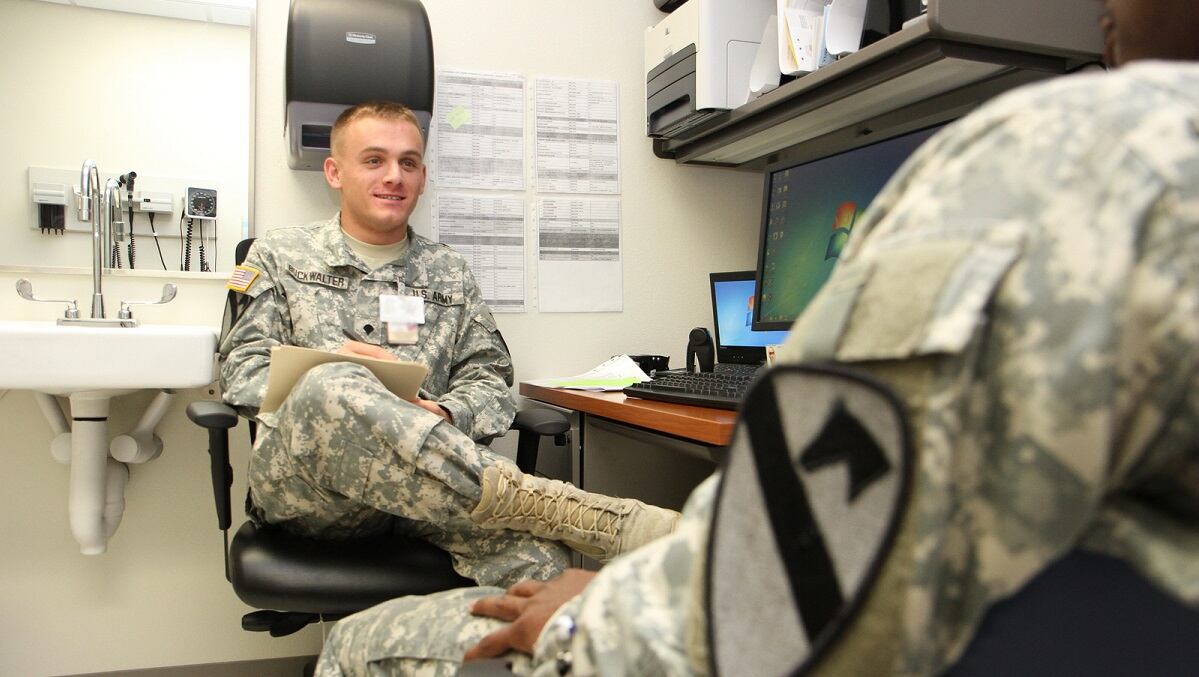While civilians and troops have similar behavioral health concerns across racial, ethnic, gender and sexual-orientation groups, a recent RAND study found that white service members are more likely to have behavioral health troubles than their non-white counterparts, the opposite of what civilian research shows.
The DoD-sponsored study sought to compare the behavioral health of minority service members to the majority, as well as compare any disparities to civilian groups, at a time when the Defense Department is reviewing a host of policies to actively support diversity and an inclusive culture.
“Whereas the U.S. military has recognized the behavioral health needs of service members in general, the specific needs of racial/ethnic, gender, and sexual minority groups are not well understood,” according to the report.
What they found is that while minority groups across military and civilian communities have similar challenges when it comes to mental health concerns, researchers found that the military has some “reverse disparities,” as the authors termed them.
“... where racial/ethnic minority groups have a lower prevalence of behavioral health risks relative to their majority peers,” they wrote. “For example, among non-Hispanic blacks, we found a reverse disparity for prevalence of suicidal ideation, hazardous drinking, binge drinking, current cigarette use, daily cigarette use, and smokeless tobacco use. Non-Hispanic blacks report engaging in these behaviors significantly less than their non-Hispanic white peers, and we were unable to explain these reverse disparities with the sociocultural environmental factors that were included in our models. We found similar reverse disparities for Hispanics and non-Hispanic Asians compared with non-Hispanic whites.”
The study found that among racial and ethnic minorities, non-white troops are less likely to have reported behavioral health concerns, though non-Hispanic Black and Asian troops are more likely to have attempted suicide than white troops.
While research of civilian populations has shown differences in behavioral health access and outcomes among minority groups ― because of cultural and socioeconomic factors at play ― that same research hasn’t been conducted thoroughly in the military, according to the report.
The researchers based their findings off of five surveys, conducted in 2015 and 2016 with subjects both in the civilian sector and in uniform, that looked at behavioral health risk factors and outcomes. They focused on depression, post-traumatic stress and suicidal behavior as one measure of behavioral health, designating problematic alcohol and tobacco habits as another.
On paper, everyone in the military can serve in any job and everyone earns a regulated amount of money, but “scant research has focused on the relationship between sociocultural environmental influences within the military (e.g., discrimination and harassment, stress exposure, social networks) and the behavioral health status of minority service groups,” according to the report.
In the civilian population, research has shown that adolescent and young-adult minorities tend to experience more depression and suicidal ideation, while their white, heterosexual counterparts are more likely to abuse substances.
“Explanations for racial/ethnic group differences in behavioral health outcomes include stress and trauma exposure, racial/ethnic discrimination, and racial/ethnic specific culture surrounding substance use,” according to the study.
The study also found that while women in uniform report more mental health conditions, they are less likely to abuse drugs than their male counterparts.
“Regarding gender, women are more likely than men to suffer from depression and PTSD,” the authors wrote. “They are also more likely to experience suicidal ideation and suicide attempts, but men are more likely to die by suicide. Men, however, are more likely to abuse alcohol and use tobacco products, including cigarettes and smokeless tobacco.”
The researchers do not go into detail about why women might experience more mental health stressors in the military, but a 2020 Pentagon study found that many women feel that the military’s culture fosters misogyny, sexual harassment and sexual assault.
RELATED

Gay, lesbian and bisexual troops showed the greatest number of stressors when compared to their straight counterparts, the report found, largely because of the way societal pressures that come along with differences in sexuality.
Multiple studies have shown that, despite the repeal of “don’t ask, don’t tell” in 2010, many LGB troops don’t feel comfortable being out among their peers.
Overall, the study concluded, minorities in the military are basically on par with their civilian counterparts when it comes to disparities in behavioral health.
The study recommends that DoD focus more attention on the issue of suicide attempts in non-white, as well as the disproportionate number of women and LGB troops suffering from behavioral health issues.
“DoD should ensure that prevention programs and behavioral health treatments address the specific needs and stressors experienced by minority service members to ensure optimal readiness in the military,” they wrote.
Meghann Myers is the Pentagon bureau chief at Military Times. She covers operations, policy, personnel, leadership and other issues affecting service members.





